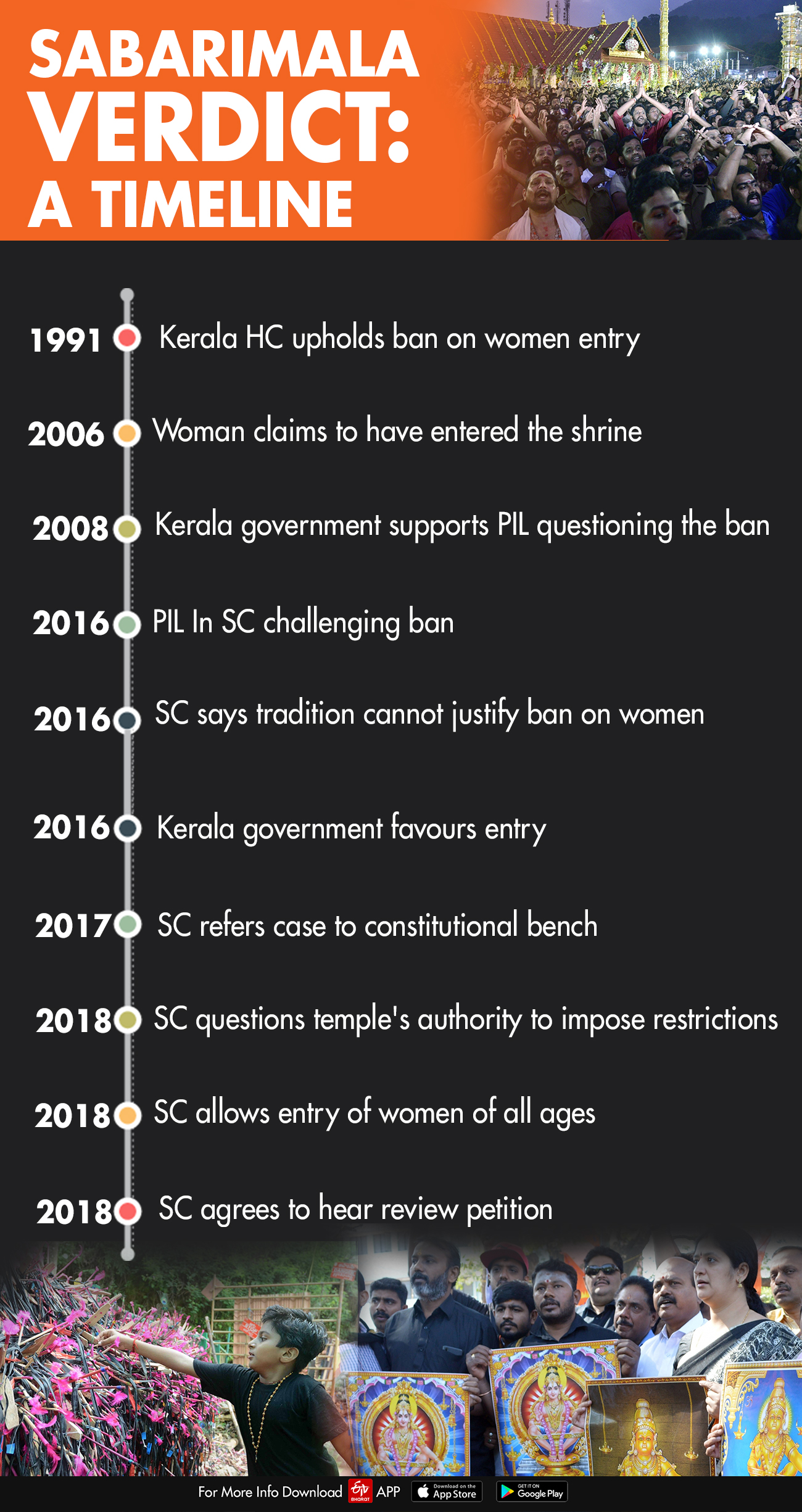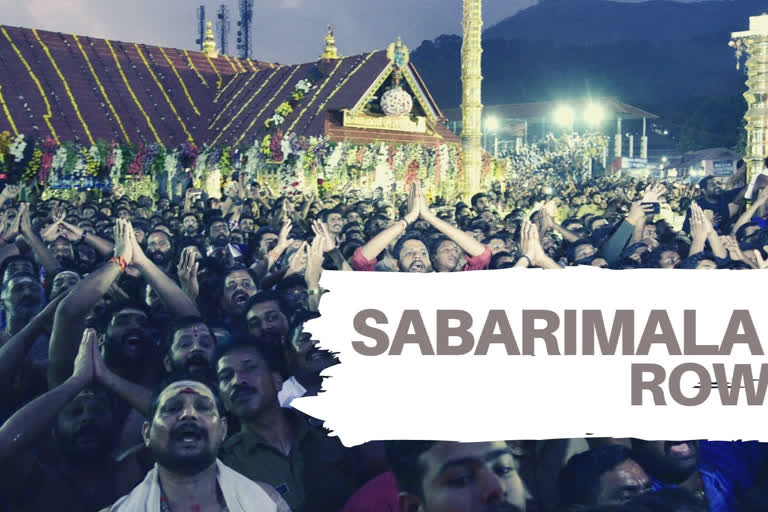Hyderabad: The Supreme Court is all set to hear the review petitions challenging the 2018 verdict which granted entry of women of menstruating age to the Sabarimala temple. We look at the tradition and history of a shrine and a 30-year-long battle against the temple that doesn't traditionally permit women entry, as the deity is believed to be a 'Naishtika Brahmachari' who follows a celibate life.
Sabarimala is a hilltop shrine located in Pathanamthitta district of Kerala. It is believed that Lord Ayyappa, the deity, did not want to see any female in the reproductive stage, and removed himself to his jungle abode.
The pilgrimage thus involves walking up almost 61 km of a treacherous path, undertaking the 41-day vow which qualifies them to visit the sanctum. Every pilgrim carries with him a kit ('Alrumudi' - which contains coconuts which are broken just before climbing the 18 steps) on his head during the pilgrimage and without it, none are allowed to go up the holy 18 steps at the 'Sannidhanam'.

The issue came into limelight when a PIL was filed by the Kerala government in 2006 against the HC order which observed that restrictions were imposed in accordance with customs and traditions of the temple.
Following SC's intervention, the ban on women was overturned and the apex court allowed entry of women of all ages in 2018. The SC observed that it is unconstitutional to reserve entry based on gender and the custom was against the provision of entry of all Hindus into a temple.
The protests and agitations against the SC verdict were taken out by several political outfits and the erstwhile managing authority of the shrine- Pandalam royal family and Tantri family, too expressed their displeasure as it concerns the faith of a community.
It was on September 28 last year, that the apex court allowed women of all ages to enter the temple and following that it was a free for all between right-wing forces which stood guard and chased away women in the age group of 10 and 50, with the Kerala Police trying their best to see that the verdict was adhered to in letter and spirit.
The Travancore Devaswom Board which manages the shrine had agreed to comply with the SC verdict.
The debate of faith vs fundamental right encompassed the ideas of Brahmanical beliefs and rituals of a temple until, the Mala Araya- a tribal community- said that Sabarimala was managed by them before the arrival of the above-mentioned Pandalam royal family.
The community alleged that rituals have been 'brahmanised' and deity's location in the western ghats proved its connection with the region's sacred groves. The community now believes that verdict from SC on the entry of women will give them an opportunity to talk about their rights of ownership.
The top court is now expected to give its final verdict after 64 review petitions have been filed asking the apex court to ensure that the traditions and culture of the famed temple are protected.
The portals of the shrine would be opened for the three-month-long annual pilgrimage season this year on November 16 and it remains to be seen how the verdict on review petitions affect the historic pilgrimage spot.
Read: Sabarimala Temple: Kerala police to deploy over 10,000 security personnel for Mandala Pooja




